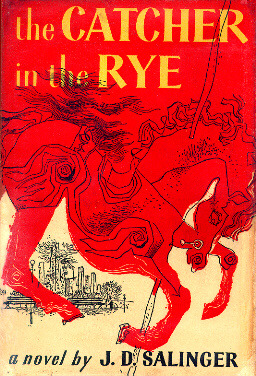 Day 20--20/501
Day 20--20/501General Musings: Sorry for the delay! Yesterday I changed my ISP and it has been a bit trying with the new system. But I now have a PVR, a faster web connection, and caller ID--I feel like I'm living in the 21st century! My email is still in flux and I'll be sure to post my new address ASAP (done). The best part, I have HBO Canada on demand and I caught up on Entourage and Mad Men past episodes. Tomorrow night I'm going to watch some Classic Star Trek--my wife is not impressed.
This weekend I'm leaving to Victoria for three weeks for a residency at Royal Roads University. I'm told that it will be demanding and the web access is dodgy. I'll have to take a short break from this project--at least with the postings. Like MacArthur, I shall return. Please feel free to message me on Twitter @brian_on_fire if you have any objections, advice or want to work as my executive assistant (the pay is poor but I will write you a helluva recommendation letter).
Running Page Count: 5,353
Today's Title (Modern Fiction): J. D. Salinger's The Catcher in the Rye
Preface: J.D. Salinger is probably the most famous writer hermit in the history of literature--he didn't return my calls for an interview when I first read his book as a teen--so you know he's serious. He is also dead.
Catcher in the Rye is no doubt the most censored book in American schools for the past century. Published in 1951 the book (written for adults) features a teenage protagonist and the novel unintentionally became a touchstone for teenage rebellion. It also holds the dubious distinction as being the manifesto for both John Lennon's killer and Reagan's shooter.
The novel is written in the first person as if the malcontent teenage protagonist Holden Caulfield wrote it--a New York times book critic did a great imitation of the style that can be a bit grating for those who don't like the story (sorry I can't find a link). Some have said the book is an embrace of Jean-Jacques Rousseau's philosophy others have seen it as a modern version of David Copperfield (born with a big caul, hence the name). Regardless, it is the most famous bildungsroman in the American canon.
The Book : When the story opens Holden Caulfield is getting kicked out of school--again. Holden finds many of his schoolmates and teachers are "phony" and is anxious to leave his residence. He catches a train into the Big Apple and not wanting to return home rents a hotel room. He then spends three days in the city alone in which he manages to get drunk, hire a prostitute, visits a museum, breaks into his parent's house, and visits a possibly pedophile teacher. Holden sees himself as a protector of innocence and sees this charge manifest in his care of his younger sister.
Grade: A
Observations: Great book that reminds me of how discontent and profoundly lost and unhappy I was as a teenager. I love the ending--I won't discuss it so as to avoid spoiling it for others but it is divine. If you haven't read this book you need to so as to understand nearly every other allusion in popular culture.
Segues: There is no film and I hope to God there never is one. This year a specious sequel was written by a writer who appropriated the character of Holden Caulfield to have him return to New York as an old man. Salinger launched a lawsuit against John California (a pseudonym) for the rip-off entitled 60 Years Later: Coming Through the Rye.
My favorite homages to the book are the film Bottle Rocket and the novel Shoeless Joe (adapted to the screen as Field of Dreams) in which the protagonist kidnaps Salinger (in the film a fictitious author of similar stature).
Speaking of Field of Dreams--did I ever mention that W.P. Kinsella used to be a writer in residence at the U of C and I used to share an elevator with him every morning? I had no idea who he was and talked with him on numerous occasions thinking him to be a bit of a nut but a great guy, Btw last year he wrote his first book in years, Butterfly Winter--he had a brain injury and gave up the craft in 1997. He is also an ardent Scrabble player--they seem to be popping up in my life lately.
Tomorrow's Book (Classic Fiction): Jonathon Swift's Gulliver's Travels 21/501